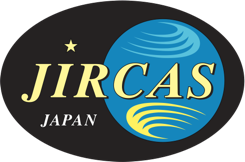TARF Holds the 42nd Public Lecture on December 7, 2017
TARF Holds the 42nd Public Lecture on December 7, 2017
Overview
The JIRCAS Tropical Agriculture Research Front (TARF) will hold the 42nd Public Lecture on December 7, 2017 with the theme “Sugarcane Cultivation and Environmental Conservation in the Philippines" to consider the need for environmental conservation through sugarcane cultivation in Negros Occidental. We will introduce the characteristics of local sugarcane cultivation, the climate, soil and land use, the impact of fertilizer application on the environment, and environmental conservation through fertilizer reduction measures to deepen understanding of the need for environmental conservation. In addition, we would like to think together about sugarcane cultivation in Okinawa from the viewpoint of environmental conservation, referring to the case of improvement of groundwater pollution in Miyako Island.
About the 42nd TARF Public Lecture
Date & Time: December 7, 2017 (Thu) 19:00~20:30
Venue: Ishigaki City Health and Welfare Center, 2nd Floor, Audio Visual Room
Title:Sugarcane Cultivation and Environmental Conservation in the Philippines
Contact Information
JIRCAS・Tropical Agriculture Research Front (TARF)
1091-1 Maezato-Kawarabaru, Ishigaki, Okinawa 907-002
Public Relations Officer: ISHIKI Koshun
Email: pro-nekken@ml.affrc.go.jp
42nd TARF Public Lecture Details
The JIRCAS Tropical Agriculture Research Front (TARF) conducts research that contributes to the sustainability of agriculture and the stable production of agricultural products in tropical and subtropical developing regions of the world. The public lectures aim to introduce some of its research activities to the general public in an easy-to-understand manner in the hope that the information will help the public understand the research activities and contribute to their daily lives.
This is the 42nd TARF Public Lecture, which was first held in May 2007. In this issue of "Sugarcane Cultivation and Environmental Conservation in the Philippines," we will consider the need for environmental conservation through sugarcane cultivation in Negros Occidental. We will introduce the characteristics of local sugarcane cultivation, the climate, soil and land use, the impact of fertilizer application on the environment, and environmental conservation through fertilizer reduction measures. In addition, we would like to deepen our understanding of the necessity of environmental conservation and think together about sugarcane cultivation in Okinawa, referring to the case of improvement of groundwater pollution by changing the fertilization method in Miyako Island.
Title: Sugarcane Cultivation and Environmental Conservation in the Philippines
Topics:
- Characteristics of sugarcane cultivation in Negros Occidental
- Characteristics of climate, soil and land use
- Environmental impact of fertilizer application
- Environmental conservation through fertilizer reduction measures
Lecturer: GOTOH Shinkichi (Senior Researcher, TARF)


